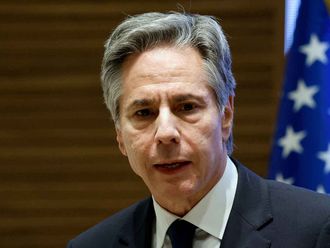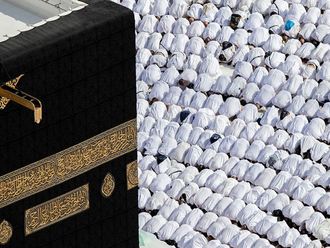WELLINGTON: New Zealand voted Saturday in a cliffhanger election pitting conservative Prime Minister Bill English against charismatic young rival Jacinda Ardern.
The campaign has been the most volatile in recent memory, with momentum swinging from English to Ardern and then back again.
“This election is going to be really close… it’s a drag race between the two big parties,” English said on the hustings Friday, conceding a large undecided vote could prove key.
Under New Zealand’s strict election laws, exit polls are not allowed during election-day voting, which opened at 9am (2100 GMT Friday) and closed at 7pm (0700 GMT).
However, a firm indication of the outcome is expected within three-and-a-half hours of the close.
There were 3.2 million registered voters of which 1.24 million cast an early vote.
No party has claimed a majority government in New Zealand’s 120-seat parliament since proportional voting was adopted in 1996 and this election is unlikely to change that.
Pre-election opinion polls showed either English’s conservative National Party or Ardern’s centre-left Labour could be in a position to form a government late Saturday.
Another possibility was that there will be no immediate winner with both major parties seeking coalition partners to get them over the line.
If that happens, populist anti-immigration campaigner Winston Peters’ New Zealand First party looms as a potential kingmaker.
Ardern was hoping for a high youth vote to counter her dip in the polls in the final week of campaigning and visited universities across the country encouraging students to cast their ballots.
“This is going to come down to whether or not people turn out and vote,” she said Friday.
‘Jacinda-mania’
English’s National Party was in the driving seat to win a fourth term until Ardern took over the Labour Party last month.
The 37-year-old galvanised support for the ailing centre-left party, giving it a 20-point popularity boost to bring it level with National.
Arden accused the government of inertia, saying that after three terms it has run out of ideas on issues such as housing affordability and protecting the environment.
Her policy platform includes free tertiary education and slashing immigration to reduce pressure on housing and infrastructure.
Ardern is bidding to become New Zealand’s youngest leader since 1856 and only the third woman to lead the South Pacific nation of 4.6 million people.
But the “Jacinda-mania” phenomenon waned as English attacked her financial credibility while pointing to his economic record over the past nine years.
The 55-year-old ex-farmer and father-of-six, who took over as prime minister when John Key stepped down last December, argued only National can maintain strong economic growth.
English also wants to make amends for his last leadership foray in 2002, when National slumped to a record defeat and won barely 20 per cent of the vote.
While tipping a close race, he is confident National can win a fourth term, a feat no New Zealand government has achieved in more than 50 years.
The wildcard for both English and Ardern is Peters, whose party could decide the outcome of the election if it is as tight as polls predict.
The 72-year-old political veteran has shown in the past that he will back either side if the right offer is made.
In 1996, he helped install a National-led government in return for being made deputy prime minister, then in 2005 he joined a Labour coalition after being given the job of foreign minister.












